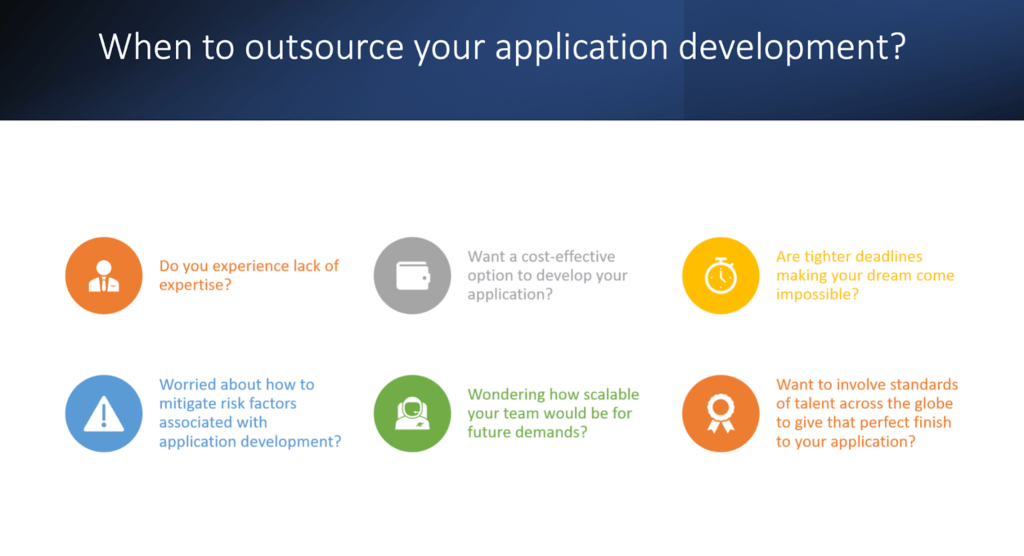Is your Ruby on Rails business application struggling with complex tasks that require specialized expertise? Do you find your in-house team lacking the necessary technical skills for certain technologies? Are you concerned about gaps in expertise affecting your project’s progress? If so, you’re in the right place.
In this article, we’ll explore the process of outsourcing Ruby on Rails development and highlight the critical factors to consider.
With over a decade of experience in application development, Mallow specializes in guiding businesses through custom Ruby on Rails projects. We understand the complexities involved and are equipped to illuminate the key considerations for partnering with an external development team.
Outsourcing Ruby on Rails development allows you to access a team of skilled developers without the overhead of hiring and training your own staff. This article will help you determine when it’s beneficial to outsource and how to make informed decisions for successful application development.
When to outsource Ruby on Rails development?
-
- Scenario 1: When knowledge gaps arise within your in-house expertise
When your in-house team lacks the specific technical expertise required for a complex application development project, turning to outsourcing can be a good decision. Application development often involves intricate programming languages, frameworks, and tools that demand a specialised skill set. Outsourcing provides businesses with access to a vast pool of specialized talent, enabling them to tap into global expertise without the challenges of hiring in-house.
Outsourcing gives you access to a pool of specialists with the knowledge and experience to effectively address the project’s unique challenges. Outsourcing expedites the development process and elevates the overall quality of your end product. Additionally, outsourcing gives your organisation the advantage of flexibility, enabling you to adjust resources according to your unique project needs.
-
- Scenario 2: When you need to stay within a budget
Outsourcing often proves cost-effective because it does not require recruiting and training additional staff. It also allows you to find skilled professionals competitively, reducing overall project costs. In fact, outsourcing application development can be more cost-efficient than hiring an in-house team.
Outsourcing eliminates overhead costs such as salaries, benefits, office space, and equipment. It also allows access to skilled professionals in regions with lower labour costs. Thus, outsourcing can result in substantial savings while maintaining the quality of work.
Validate your existing Ruby on Rails application with our comprehensive guide
DOWNLOAD NOW
-
- Scenario 3: When you have the pressure of a tight timeline
Tight deadlines or the need for rapid development make outsourcing attractive, as external teams can dedicate more resources to expedite your project.
Outsourcing removes the micromanagement burden, as the external team assumes a substantial share of the project’s management responsibilities. This shift in responsibility allows your internal team to focus on core tasks and strategic decision-making. The streamlined communication and collaborative workflows with an experienced outsourcing partner can result in more efficient project execution, reduced stress associated with micromanagement, and enhanced productivity.
-
- Scenario 4: You need to access the latest technologies
External experts can tailor the latest technologies to your specific requirements, ensuring that your application leverages the technology to enhance its functionality and value.
External development teams often specialise in various technologies and stay current with the latest advancements since they have worked on applications across different domains. This expertise allows them to suggest and implement the most suitable and effective technologies for your application’s needs.
-
- Scenario 5: You need to mitigate the risks associated with launching your application
Established outsourcing partners often have a proven track record, mitigating the risk associated with new or unfamiliar projects. By collaborating with a reputable and experienced outsourcing provider, businesses can tap into a pool of specialised talents without bearing the full burden of recruitment, training, and management.
Outsourcing allows you to distribute the risks related to project management, budgeting, and timelines, as the responsibility is shared with the outsourcing partner. With well-defined contracts and service level agreements, businesses can ensure that their development needs are met within established parameters, minimising the potential for unexpected setbacks.
-
- Scenario 6: You need to scale up resources based on the demand
If your project’s size fluctuates, outsourcing allows you to quickly scale resources up or down without the long-term hiring commitment. Outsourcing provides flexibility to scale resources up or down based on project requirements. This prevents the need to maintain a large in-house team during periods of lower demand. The main reason behind this is outsourcing companies often have established infrastructures and expertise, leading to economies of scale. This enables them to offer services at competitive rates.
-
- Scenario 7: You want access to the best talent to develop your application.
What are the benefits of outsourcing Ruby on Rails development?

-
- Cost savings
Outsourcing development to countries with more budget-friendly labour can significantly reduce expenses compared to hiring an in-house team. This includes savings on salaries, benefits, infrastructure, and operational overhead. Outsourcing contracts often provide clear cost structures, making budgeting and financial planning more predictable. Outsourcing eliminates the need to invest in additional infrastructure, hardware, and software licenses required for development.
-
- Access to expertise
Outsourcing allows you to tap into a global talent pool of skilled developers, designers, and other professionals specialising in various technologies and industries. A report from Global Response outlines how outsourcing provides access to a diverse talent pool with specialized skills and expertise, enhancing operational efficiency. If your application is intended for a global audience, outsourcing to a team from different regions can provide insights into regional preferences and cultural nuances.
When contemplating outsourcing your application development, you gain the added advantage of not training your in-house team in advanced additional technologies that might be required for your project only for a short period. The outsourcing team will shoulder the responsibility of staying current and implementing these technologies, allowing you to focus on other aspects of your project with confidence.
This relieves you of the burden of constantly monitoring the rapidly evolving tech landscape, ensuring your Ruby on Rails application remains cutting-edge and competitive. With the expertise of the outsourcing team, you can expect efficient adaptation to emerging trends and seamless integration of new features, ultimately saving you both time and resources.
-
- Faster time-to-market
Finding and hiring skilled developers can be time-consuming and challenging. Outsourcing eliminates the need for lengthy recruitment processes. With an experienced outsourcing partner, you can accelerate the development process, launch your application sooner, and gain a competitive edge in your market.
Many outsourcing companies have dedicated quality assurance and testing teams to ensure the developed application meets high-quality standards before launch. Outsourcing offers flexibility in scaling your development resources up or down based on project demands. This agility can be crucial for managing peak workloads or unexpected changes.
What to look for in an outsourced Ruby on Rails development team?
Building an application development team is a critical phase demanding thoughtful attention to secure project success. As you construct your team, several pivotal aspects deserve your focus. Start by identifying the specific skills and expertise tailored to your project’s needs, whether it involves mobile app development, web creation, or other specialised domains. Search for teams who boast a robust portfolio underscoring their pertinent work and technical prowess. Effective teamwork hinges on solid communication skills, ensuring seamless collaboration and a clear grasp of project objectives.
Pay attention to the importance of cultural alignment, as a harmonious team dynamic can significantly elevate productivity. Evaluate the team’s familiarity with your preferred development tools and methodologies and adaptability to emerging technologies. Draw insights from references and feedback from past clients, illuminating the team’s professionalism, dependability, and ability to meet deadlines. Scrutinising these aspects enables you to fashion a proficient, united application development team primed for triumph.
For efficient application development team hiring, refer to this article on how to hire an application development team.
Common challenges faced while outsource Ruby on Rails development
| ⬇ Common challenges faced | ⬆ Ways to overcome the challenges |
| Communication barriers | Establish clear communication channels, use video calls and project management tools, and ensure all team members are fluent in a common language. Regular updates and check-ins are vital. |
| Time zone differences | Plan overlapping working hours for real-time collaboration, define core working hours, use asynchronous communication tools, and prioritise documentation for continuity between time zones. |
| Cultural differences | Conduct cross-cultural training, promote open discussions about cultural nuances, and encourage understanding and respect among team members from diverse backgrounds. |
| Quality control | Set clear quality standards, establish a comprehensive testing process, ensure regular code reviews are being conducted, and define expectations for deliverables, coding standards, and bug-free code. |
| Lack of direct control | Maintain a diverse network of partners, consider multi-sourcing for critical components, and have contingency plans in case of unexpected issues with your primary partner. |
| Data security concerns | Implement stringent security protocols, sign non-disclosure agreements (NDAs), use secure communication and collaboration tools, and choose outsourcing partners with proper certifications like ISO. |
| Dependency on outsourcing partners | Clearly define the project scope, deliverables, and associated costs upfront in the contract. Review project progress and expenses regularly to identify and address potential cost overruns. |
| Hidden costs | Build flexibility into the project plan, establish a change management process, and maintain clear communication channels to promptly address and adapt to changing requirements. |
| Loss of domain knowledge | Implement a thorough knowledge transfer process, document project details comprehensively, and encourage collaboration and regular interactions between the in-house and outsourced teams. |
| Managing remote teams | Promote a culture of trust and transparency. Set clear expectations, roles, and responsibilities for each team member. |
| Legal and contractual challenges | Work with legal experts to draft well-defined contracts that cover intellectual property rights, liability, confidentiality, and dispute resolution procedures. |
| Unforeseen changes in Requirements | Build flexibility into the project plan, establish a change management process, and maintain clear communication channels to address and adapt to changing requirements promptly. |
How much does outsource Ruby on Rails development cost?
By now, you have a clear idea about how outsourcing your Ruby on Rails application development would look like. You have an overview of when, why, and how you need to opt to outsource your Ruby on Rails application development.
Once you are done examining the overall picture of the option to outsource your Ruby on Rails application, your next action item would involve determining the cost you would incur while working with an application development team. But Hold on! Before that, you need to understand all the factors an application development team considers in the cost they charge you.
Application development companies consider several factors to determine the final cost of an application. These factors include the type of business model, target users, and services, which help to frame the app’s budget design. The app’s complexity, design, platform, and features are significant factors determining the cost of developing an application.
Check out this article on how application development companies determine the cost they charge to get deeper insights into what factors they consider before they arrive at the final cost they charge you.
Do you feel Mallow could be the right choice to build your Ruby on Rails application? Check out this article: Is my Ruby on Rails project right fit to be built by Mallow to get a complete idea about your project’s compatibility with team Mallow?
Still wondering where you need to take your next step? Feel free to reach out to our team.
Your queries, our answers
No, Ruby on Rails is not a dying language. While newer frameworks have emerged, Ruby on Rails continues to be widely used, particularly for web applications that require rapid development and scalability. The community around Ruby on Rails remains active, and the framework is regularly updated with new features and security improvements. Check out here to know if Ruby on Rails is still relevant in 2025 and explore its current state and future prospects.
Mallow prioritizes security in every stage of development. We implement best practices like data encryption, secure authentication methods, and regular security audits. Ruby on Rails also has built-in security features, such as protection against SQL injection and cross-site scripting, which we utilize to safeguard your application.
The cost of building a Ruby on Rails application varies depending on the project's complexity, features, and scope. For a basic MVP, the cost ranges from $20,000 to $40,000 for a web app. For more complex applications, the cost can be significantly higher. We provide a detailed and transparent cost breakdown tailored to your specific requirements. Check out here to find out how much building a Ruby on Rails project with Mallow costs.
Yes, Mallow can integrate various third-party services, such as payment gateways, APIs, and external databases, into your Ruby on Rails application. Our team ensures seamless integration to enhance the functionality and user experience of your application.
Yes, we can align our working hours with your time zone to facilitate effective communication throughout the development process. Check out here to know how to handle the timezone difference.
Mallow offers the following outsourcing models: Project-based outsourcing, Staff augmentation, & Dedicated development team (DDT)
Ruby on Rails is a versatile framework that can be adapted to a wide range of projects. It excels in rapid development, making it suitable for startups, MVPs, and complex web applications. Whether you're building a large-scale e-commerce platform or a custom content management system, Ruby on Rails provides the flexibility and efficiency needed to support your project.
Mallow's development team is experienced in designing and implementing scalable Ruby on Rails applications. We use a combination of efficient code architecture, database optimization, and cloud infrastructure to ensure your application can scale to meet growing user demands without compromising performance.
The development timeline varies depending on the complexity and scope of the project. For a basic MVP, it might take around 3 to 6 months. More complex applications with advanced features could take longer. We work closely with you to establish a realistic timeline and keep you informed throughout the development process.
At Mallow, we emphasize thorough testing and quality assurance to ensure the reliability and performance of your Ruby on Rails application. Our QA team conducts various tests, including unit testing, integration testing, and end-to-end testing, to identify and fix issues before deployment.
No, we don’t provide off-the-shelf products. We are custom software solution providers who tailor applications in a customized way as you desire. However, we can create personalized applications tailored to your unique needs, providing you with a fully customized experience when using the application.
Yes, you can hire a dedicated Ruby on Rails developer or a team of developers from Mallow. This allows you to have a dedicated resource working exclusively on your project, providing more control and flexibility over the development process. Check out our article on the top 9 things to consider as you plan to hire a Ruby on Rails developer for more insights.
Author
Kamalavel Rajendran
Kamal is the CEO of Mallow Technologies, a visionary leader with a mission to harness the potential of technology for tackling a variety of business challenges. He established the company with the objective of delivering tailored software solutions that address the wide array of issues encountered by businesses. He firmly believes that technology, empowers businesses to make informed decisions and promotes growth from every angle. In his leisure time, Kamal exhibits a remarkable passion for the game of tennis, immersing himself fully in the game. Furthermore, beyond the confines of the tennis court, his unwavering enthusiasm for innovation is apparent as he stays at the forefront of the latest developments in the realms of both business and technology. His dedication to merging the worlds of business and technology positions him as a dynamic presence in the industry, continually seeking inventive solutions to propel companies towards new horizons.




